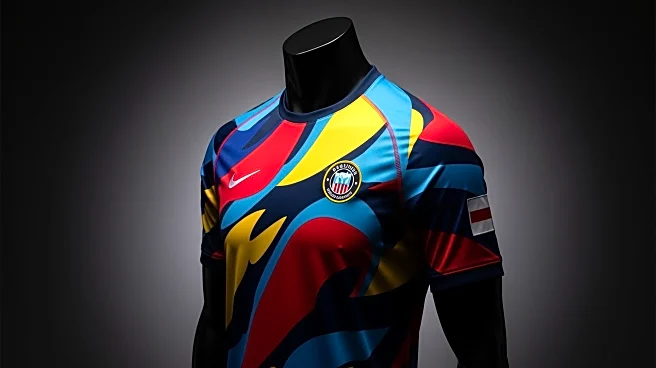What is the story about?
What's Happening?
Jelena Ostapenko issued an apology following her controversial comments made during a second-round match against Taylor Townsend at the U.S. Open. Ostapenko, who lost the match in straight sets, was recorded telling Townsend that she had 'no class' and 'no education.' Ostapenko clarified her remarks, stating that her comments were related to tennis etiquette, particularly regarding Townsend's failure to apologize for winning a point on a lucky net cord shot. Townsend responded to the incident, expressing no personal animosity and focusing on her progress in the tournament. Naomi Osaka also commented, highlighting the racial implications of Ostapenko's remarks, given the historical context within the sport.
Why It's Important?
The incident underscores ongoing discussions about sportsmanship and racial sensitivity in tennis, a sport historically dominated by white athletes. Ostapenko's comments, perceived by some as racially insensitive, highlight the need for greater awareness and understanding of cultural and racial dynamics in sports. Townsend's response reflects resilience and a focus on her performance, while Osaka's remarks bring attention to the broader implications of such comments. This situation may prompt further dialogue on etiquette and respect in tennis, influencing how players interact on and off the court.
What's Next?
As the U.S. Open continues, players and officials may engage in discussions about sportsmanship and the importance of respectful communication. Ostapenko's apology could lead to increased scrutiny of player interactions and the enforcement of etiquette standards. The incident may also encourage tennis organizations to address racial sensitivity and cultural awareness more explicitly, potentially influencing future policies and educational initiatives within the sport.
Beyond the Headlines
The controversy highlights the intersection of race, culture, and sportsmanship in tennis, prompting reflection on how athletes navigate these issues. Ostapenko's comments, and the subsequent reactions, may contribute to broader conversations about inclusivity and respect in sports, encouraging players and fans to consider the impact of words and actions. This incident could serve as a catalyst for change, fostering a more inclusive and understanding environment within tennis and other sports.

















